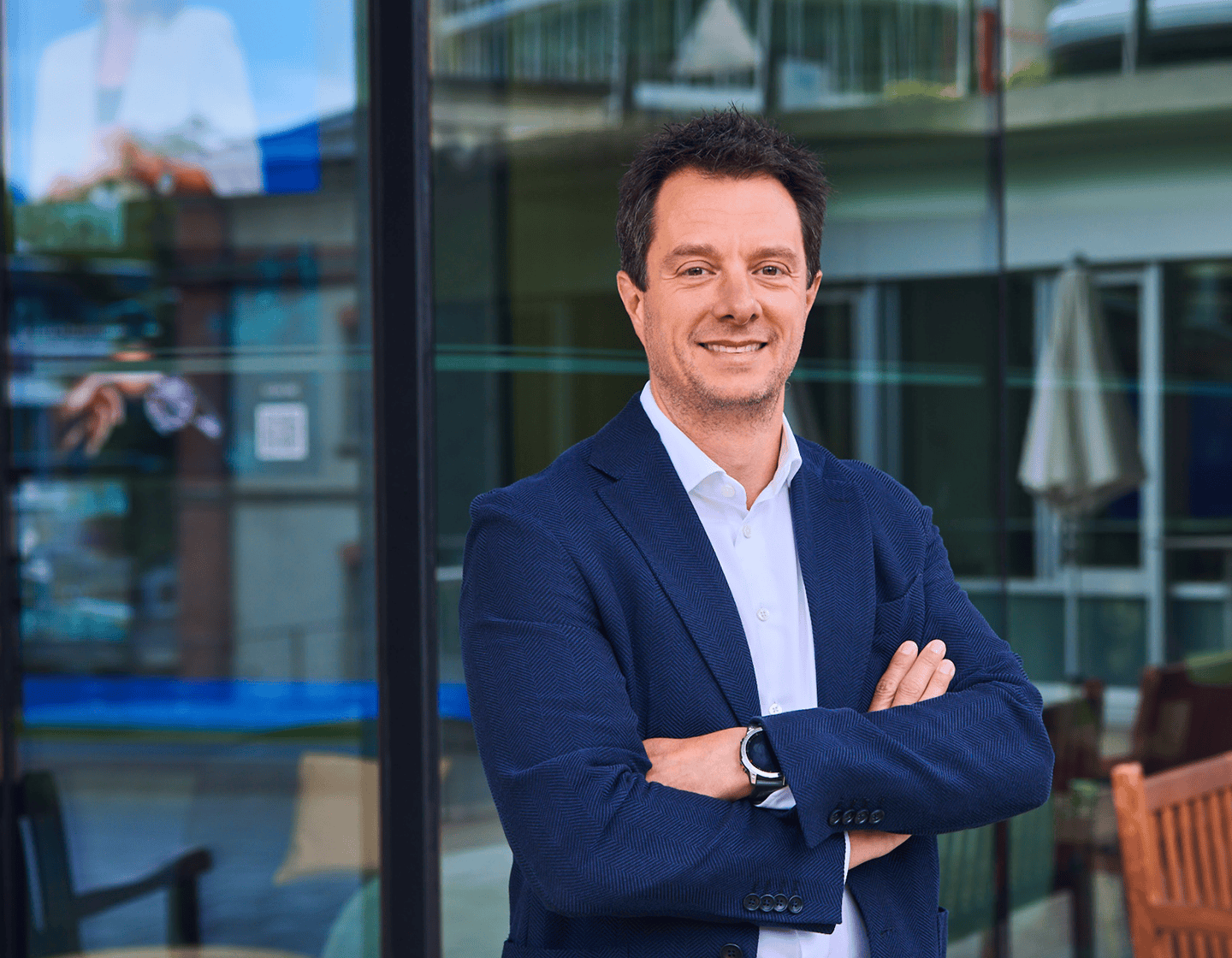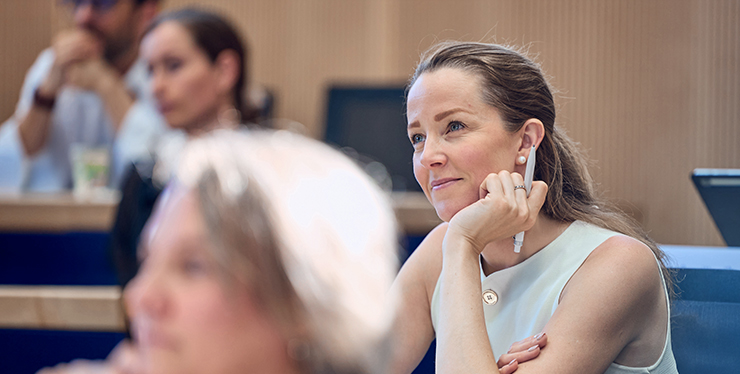
Gianrico Duriet is no stranger to high-pressure environments. But after more than two decades of leading across industries and markets, his biggest insight is deceptively simple: “It’s not necessarily me who has to solve the problem,” he said. “It’s about staying in the tension, energizing and mobilizing the team while holding that space long enough for the team to find the right way through.”
It’s this shift, from leading through action towards leading through presence, that has been a defining focus in Duriet’s leadership. IMD’s Transition to Business Leadership program gave him the space and structure to reflect more deeply on that evolution.
“The Transition to Business Leadership journey was exactly what I needed,” said Duriet, who is the Head of Sales at Nestlé Suisse. “It helped me slow down, reflect, and change my leadership approach, without losing what made me successful in the first place.”
From frontline experience to enterprise leadership
Duriet’s career has spanned sectors and functions, each requiring a fresh approach to leadership. He has held customer-facing roles in industries including healthcare and fast-moving consumer goods: positions that demanded negotiation, empathy, and trust-building. But the scope of his roles has expanded dramatically.
“I moved from specific operational roles in a single category to broader strategic ones, including at HQ. Then I returned to the market with a much wider portfolio. Each shift brought new complexities and required a new way of leading,” he said.
This diversity of experience has taught him to adapt quickly, especially when managing across functions and cultures. “You have to go from being in the detail to stepping back and empowering others to lead,” he said. “That’s when you start leading leaders, not just teams.”
A lifelong ambition to learn from the best
Though IMD is a long-standing training partner for Nestlé, Duriet’s interest in the school was personal. “As a Swiss national, IMD has always been a reference,” he said. “It’s a place I’ve always wanted to study.”
But the draw was more than brand recognition. With a career steeped in commercial negotiation, Duriet was especially attracted to the school’s leadership expertise in this area.
“Life is a negotiation. And when you have faculty like Michael Watkins and George Kohlrieser, people who really understand this dynamic, I knew IMD was where I wanted to go.”
The Transition to Business Leadership program, with its focus on both inner transformation and outer leadership, offered a rare opportunity to pause and take stock at a pivotal moment in his career.
The unexpected value of slowing down
For Duriet, the biggest impact of the program didn’t necessarily come from a specific session, but rather from the space in between. “You rarely have time to stop and breathe,” he said. “Transition to Business Leadership gave me that time. And in that pause, I was able to see what needed to shift.”
That shift wasn’t about throwing everything out. It was about consciously evolving. “I realised I didn’t have to hold on so tightly to the traits that got me here,” he shared. “With the tools I now have, I can adjust and grow without losing what made me strong.”
The reflection exercises, the coaching sessions, and the structure of the program itself helped him internalize these lessons. “It’s designed to prepare you for change,” he said. “Step by step, your brain and your body get ready.”
Redefining how leadership shows up
One of the program’s most powerful takeaways for Duriet was the idea of shifting leadership archetypes. “Transition to Business Leadership introduced me to this concept of moving from pushing to pulling, from forcing to accompanying, from personal winning to being the best version of myself and winning for a bigger purpose,” he said.
These insights helped him step more fully into a leadership style that emphasizes emotional intelligence, presence, and agility. “Since IMD, I feel it’s more about playing the game and dancing with complexity. You need to stay open, question yourself, allow doubt, while still managing the expectations of yourself and others,” he added. It’s about playing the game differently, with a step back.”
For Duriet, this kind of agility isn’t just helpful, it’s essential, particularly in large organizations where uncertainty is a constant.
Performance with purpose
As he looks ahead, Duriet believes that leaders who create long-term value are those who think beyond themselves. “They’re connected to their emotions, they act with authenticity, and they make decisions that may not be popular in the short term but are right in the long run.”
That includes rethinking what success looks like. “Sometimes we need to accept slower growth,” he said. “In certain markets, the right thing may be to grow less but ensure we are doing the right thing. But that’s not easy in a world driven by quarterly results.”
Duriet appreciates that IMD didn’t shy away from such tough questions. “What impressed me was how openly we talked about values, impact, and responsibility,” he reflected.
“This isn’t just a business school about performance, it’s a business school that challenges you to lead with purpose and to be in balance.”
Not an end, but the beginning
Though the program has just ended, Duriet sees Transition to Business Leadership not as a finish line, but a starting point. “I now have a better understanding of who I am as a leader, and I trust the tools I’ve gained to adapt to play the game in the right way as the world changes.”
He still embraces the challenges, still welcomes the complexity, but now with a new mindset.
It’s not flashy leadership, but it’s real, resilient, and grounded. It’s about knowing how to stay in motion, adapt, and respond with intention.
“I see it as a dance,” he said. “It’s about agility, about openness, about being able to shift your rhythm when the situation demands it.” With a clearer sense of who he is and how he wants to lead, he’s stepping into the complexity, not to control it, but to move with it.


